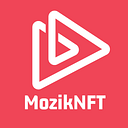Like Get Me In, Stubhub, or Viagogo, Ticket resale marketplaces can be dreary places for music fans. These online ticket exchanges are the home of scalpers or people who have no interest in the music or artists but are only trading the tickets for profit. Ticket scalping is a plague in the concert industry.
The internet has shaped music into a worldwide industry worth billions of dollars. Famous musicians have fans spanning the globe, and most would love to see their favorite artists perform live in concerts.
But here is the problem: ticket scalpers will take advantage of the demand and resell the tickets at an exorbitant price. As ticket sales are now all done online, scalpers have kept up with the technology. They use bots and hundreds of accounts to reserve and buy tickets the instant they become available, often purchasing blocks of tickets at a time before any true fan was even able to click the “purchase ticket” button.
Artists have very little control over how and where their tickets are made available. In 2018, Ed Sheeran tried to stop touts reselling tickets to his UK concerts. Most ticket resellers agreed they would not list tickets for the tour, but Viagogo did not comply. As a result, over 500 fans paid inflated prices at the Cardiff stop. The artists have no control in setting a maximum price of the ticket, limiting the number of times it can be resold, or receiving a percentage of the resell value of the ticket. All the profits currently go to the scalpers and don’t benefit either the artists or their fans.
Furthermore, contrary to what you may assume, a tiny percentage of tickets are actually sold on the open market. Most issued tickets are given to credit card companies, fan clubs, sponsors, and the venue. It is estimated that only about 20% of all tickets are sold to the public for most big shows in the US. This means that it really depends on your luck if you ever get tickets to see your favorite artist.
How Can NFTs Solve the Scalping Problem in the Music Industry?
Non-Fungible Tokens or NFTs are built on top of blockchains. Artists can sell their concert tickets as NFTs. With smart contracts, they can encode the terms and conditions of sale. They can dictate how the tickets are sold and the prices in the primary and secondary markets while also tracking the ticket sales.
In other words, NFTs give artists the power to eliminate scalpers.
The adoption of NFTs has already started gaining momentum within the industry. In the first few months of 2021, notable names in the music industry such as Grimes, Shawn Mendes, Mike Shinoda, Steve Aoki, and Post Malone have sold millions of dollars worth of digital merchandise using NFTs, including concert tickets and live show invitations.
The Role of MOZIK in the Music NFT Market
Leveraging blockchain technology, MOZIK is the perfect platform for musicians to market to their fans directly and securely. Artists can upload their tracks to the system, track engagement, and record sales in one consolidated dashboard.
The MOZIK NFT Platform enables artists to issue NFTs hassle-free. It allows their fans to support them directly. As NFTs can represent anything digital or physical, this provides new opportunities for the artists to experiment and generate new revenue streams. Fans will also benefit from experiencing these new offerings, as well as becoming investors in exclusive collectables.
If you are an artist, MOZIK’s innovative platform ensures that fans will have access to all of your products, including merchandise, collectables, and content. You can also issue tickets as NFTs and have complete control of the pricing structure. Payments are automated and fully secured, so you will never need to worry about when and how much you will be paid.
The MOZIK NFT platform is truly a game-changer in the music industry.
About Mozik
Mozik is a decentralized music streaming platform that utilizes blockchain-powered NFT technology to provide artists with recognition and remuneration for their works. The platform enables users to discover quality emerging musicians, and actively contribute to their development. Currently, Mozik boasts 10 million registered users and is focused on providing the best music-streaming service possible before moving to other creative industries.
